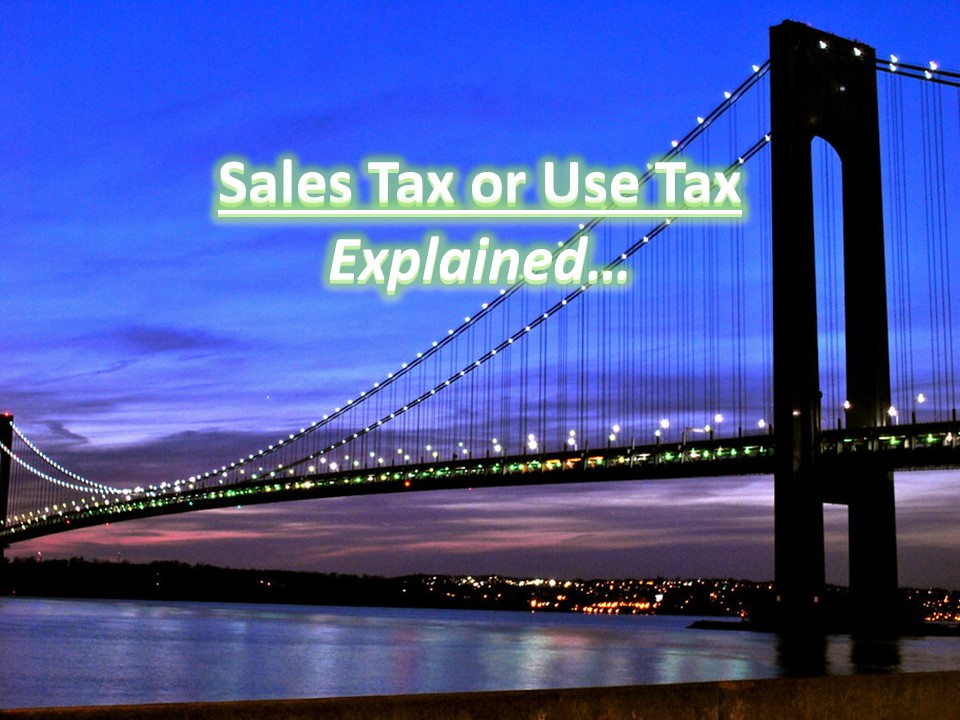12
February
2023
Sales Tax & Use Tax Explained by Jersey Shore Clothing

What is the difference between a Use Tax and the existing Sales Tax?
The difference lies in how they're calculated and who pays them. While a sales tax is applied at the time a purchase is made and is collected and remitted to the government by the seller, a use tax is calculated and paid by the consumer or end user. The rate, however, is generally the same as the local/state sales tax.
⚠️ Information Source: Investopedia
What is Use Tax in simple words?
Use Tax is defined as a tax on the storage, use, or consumption of a taxable item or service on which no sales tax has been paid. Use tax is a complementary or compensating tax to the sales tax and does not apply if the sales tax was charged.
⚠️ Information Source: Google
Sales Tax is defined as a tax on the sale, transfer, or exchange of a taxable item or service. Sales tax generally applies on the sale to the end user or ultimate consumer. Sales tax is generally added to the sales price and is charged to the purchaser.
Sales tax in its truest definition applies only to intrastate sales where the seller and the customer are located in the same state. Sales taxes are considered “trust taxes” where the seller collects the tax from the customer and remits the collected tax to the appropriate taxing jurisdiction.
There are different types of sales taxes imposed by the states. Some states are Seller Privilege Tax states while others are Consumer Tax states. This determines who is primarily liable for the payment of the tax.
In Seller Privilege Tax states, the seller is primarily liable for the tax. The seller must pay the tax whether or not the tax is collected from the purchaser. The tax is generally imposed on the privilege of doing business in the state. Since the tax is not required to be passed on to the purchaser, it is not required to be separately stated on the invoice. However, most sellers do show the tax on the invoice. Under audit, the state can only collect the tax from the seller.
In Consumer Tax states, the tax is imposed on the buyer with responsibility for collection by the seller. The seller is still required to remit the tax even if it is not collected from the buyer, but it is usually easier to recover the tax from the buyer. The tax is generally imposed on the privilege of using or consuming the products or services purchased. Under audit, the state can collect the tax from either the seller or the purchaser. Most of the states are considered Consumer Tax states.
Use Tax is defined as a tax on the storage, use, or consumption of a taxable item or service on which no sales tax has been paid. Use tax is a complementary or compensating tax to the sales tax and does not apply if the sales tax was charged.
Use tax applies to purchases made outside the taxing jurisdiction but used within the state. Use tax also applies to items purchased exempt from tax which are subsequently used in a taxable manner.
There are two types of use taxes – Consumer Use Tax and Vendor/Retailer Use Tax. Consumer Use Tax is a tax on the purchaser and is self-assessed by the purchaser on taxable items purchased where the vendor did not collect either a sales or vendor use tax. The purchaser remits this tax directly to the taxing jurisdiction. Vendor or Retailer Use Tax applies to sales made by a vendor to a customer located outside the vendor’s state or sales in interstate commerce if the vendor is registered in the state of delivery.
⚠️ Information Source: Sales Tax Institute
~JSC











1 COMMENTS
Lynell - 05 October, 2024 at 01:47
Howdy! Would you mind if I share your blog with my facebook group? There's a lot of folks that I think would really appreciate your content. Please let me know. Cheers https://Lvivforum.Pp.ua/
Reply